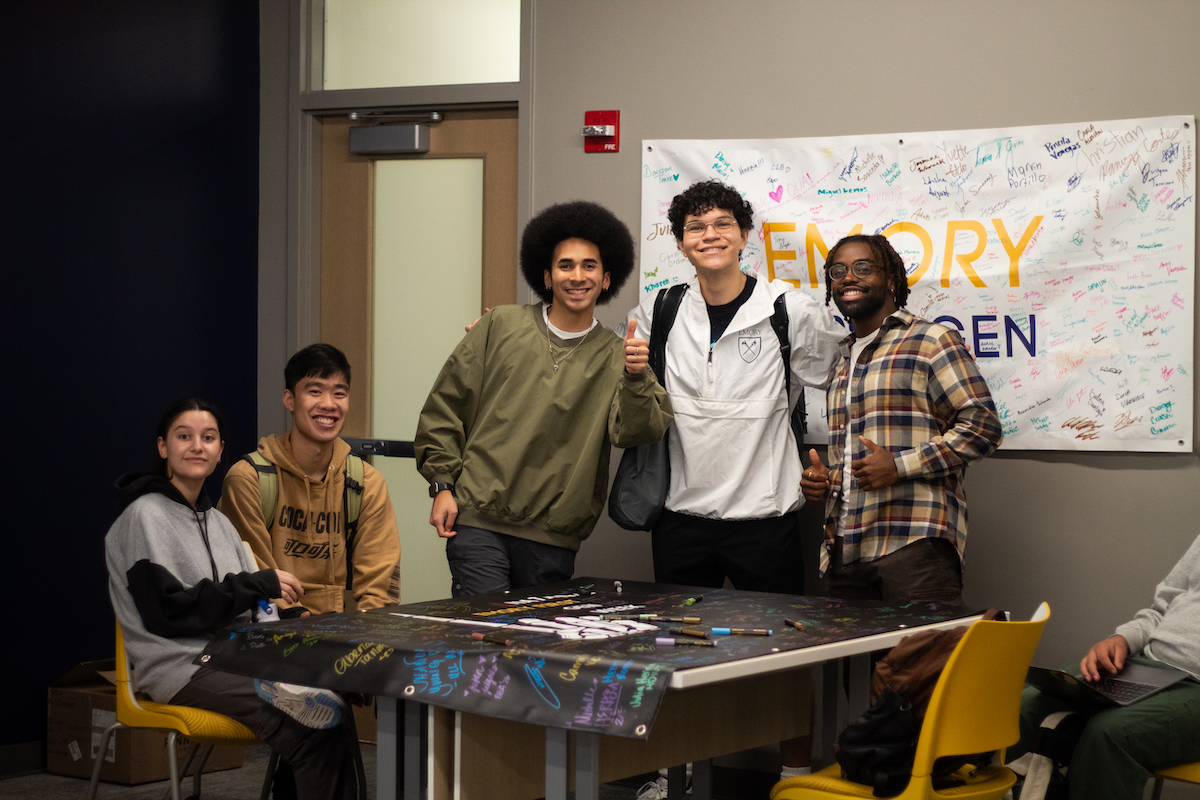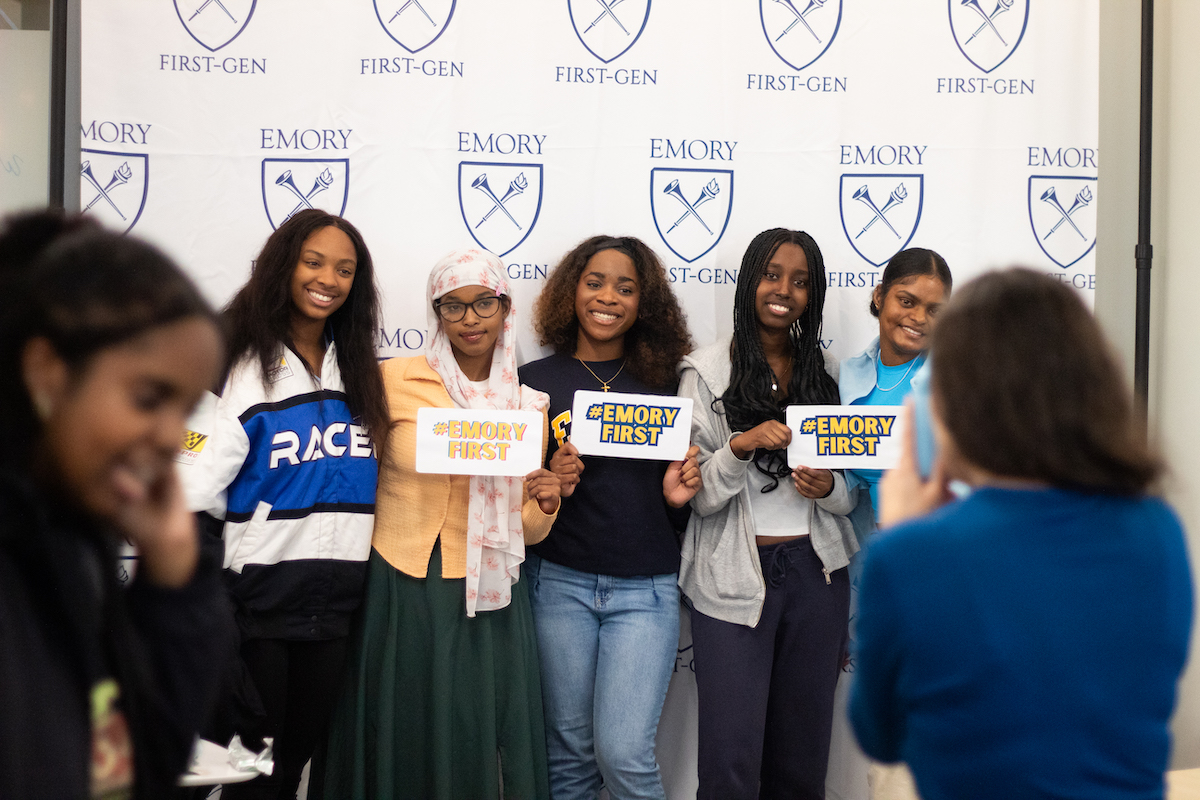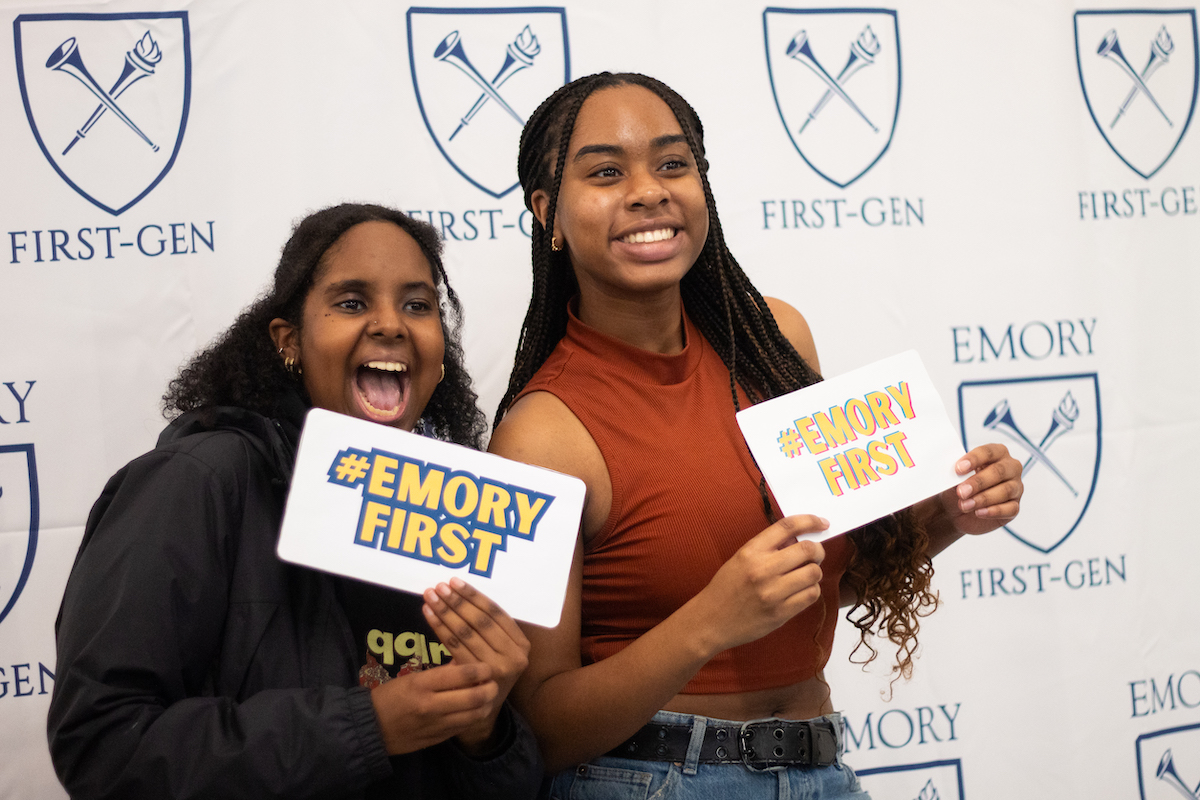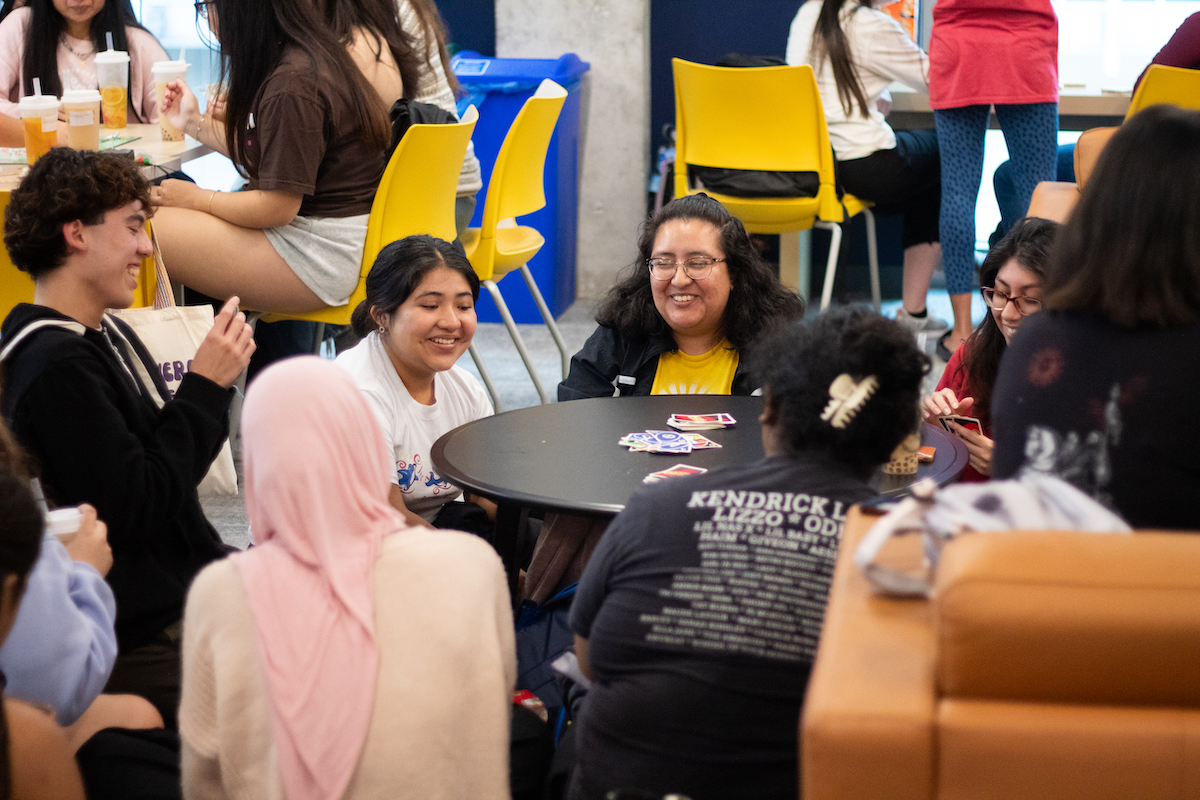Emory supports and celebrates diversity in its innumerable and infinitely varied expressions as a centerpiece of life on campus and a unifying facet of the university’s global community. A vital aspect of diversity is social and economic in nature, and Emory’s commitment to such diversity takes many forms.
Celebrating first-generation students is one way Emory embraces its dynamic campus community. A “first-gen” college student is one whose parent(s) did not complete a four-year college degree. Based on fall 2023 enrollment, more than 14% of all Emory undergraduates are first-generation students and more than 18% receive Pell Grants. Among Emory’s first-year cohort of students (Class of 2027), nearly 16% are first-gen and nearly 18% receive Pell Grants.
As the first in their families, first-generation students and students from limited- and low-income (FGLI) backgrounds often bring an abundance of life experiences that add to the unique tapestry of their skills and talents. First-gen students are trailblazers, who make an intergenerational impact on their families and communities. Emory celebrates that achievement and creates opportunities through targeted support and a range of resources.
Emory’s 2023 First-Gen Week, Nov. 6-10, was held concurrently with the annual National First-Generation College Celebration Day on Nov. 8. Events were open to all members of the Emory community and included free food, fun, games and giveaways as well as activities that connected students with important resources and opportunities for dialogue.
Sessions this year included a panel with current first-gen and limited- and low-income professional and graduate students who shared insights into academic studies and career opportunities in health care. A luncheon hosted by QuestBridge, which connects exceptionally qualified low-income youth with leading colleges, provided FGLI students with information on upcoming QuestBridge and other events.
Additional collaborators hosting activities around campus during the week included the Office of Undergraduate Education (OUE), Pathways Center, Pre-Health Advising, Emory School of Medicine, Wonderful Wednesday and others.
Why target recognition and support of these students?
Although numerous and varied, all First-Gen Week offerings shared a common goal: to nurture a sense of belonging and build community among first-generation students.
“To have a truly successful college career, every student, including first-gen students and those from limited- and low-income backgrounds, needs to feel a sense of belonging to and engagement with our university community,” says Danielle M. Bruce-Steele, director of the Office of LGBT Life and staff co-advisor of the Mariposa Scholars program. She also guides first-gen programming.
According to Bruce-Steele, FGLI students — like all students — bring a variety of life experiences and perspectives that enrich the college journey for the entire student body. However, unlike other groups, FGLI students face unique challenges such as less financial support available from their families and more time-intensive personal and employment obligations. According to research, limited and low-income students are more likely than other students to leave college after their first year.
In addition to offering the assistance described above, Emory actively expands access to financial aid for students with the greatest need as part of the university’s Student Flourishing initiative. Through the Emory Advantage program, institutional grants and scholarships replace loans for students from limited- and low-income backgrounds to reduce their long-term debt.
Emory First: Coordinating FGLI initiatives across campus
Emory First was established in fall 2023 to serve as a central hub for FGLI students. The office’s goal is to help ensure students have access to resources and community engagement opportunities that are essential to their educational journey. Bruce-Steele serves as staff contact while Campus Life conducts a nationwide search for a permanent director.
Emory First resides under Belonging and Community Justice (BCJ), a cluster of Campus Life offices that create opportunities for students to learn, engage and find community as relates to race, gender, sexuality and more. Emory First will partner with more than a dozen initiatives hosted by various university organizations, including some that participated in First-Gen Week, that reach out to first-gen and limited- and low-income students.
For example, Campus Life’s renowned 1915 Scholars Program, now a signature program under the Emory First umbrella, was established in 2014 to provide information, mentoring and social support for first-gen students. Emory’s First-Generation Low-Income Partnership (FLIP) is a registered student organization that provides resources to help ensure every FLIP student has a successful college experience. Empowering First Community offers an intentional residential learning experience for first-generation students.
The First-Gen Faculty Committee of OUE identifies areas in which faculty can help support the first-gen community and offer perspectives on students’ experiences. OxFirst is an Oxford College student organization that offers resources and hosts events to help support FGLI students.
Emory First resides in one of six new student identity spaces that opened this semester in Cox Hall as places where students can meet with peers of similar backgrounds. During First-Gen Week, students were invited to the identity spaces for an interactive dialogue facilitated by Barkley Forum — a dialogue that will help shape the future of Emory First.
“Emory First, First-Gen Week, and a host of other initiatives are among the many ways the university is investing in the diversity of our student body by providing support for students who historically might not have had the opportunity to attend this university,” says Bruce-Steele.
“Our investment in diversity not only enriches the Emory experience for all members of our community,” she adds. “It also supports Emory’s mission ‘to create, preserve, teach and apply knowledge in the service of humanity.’”






